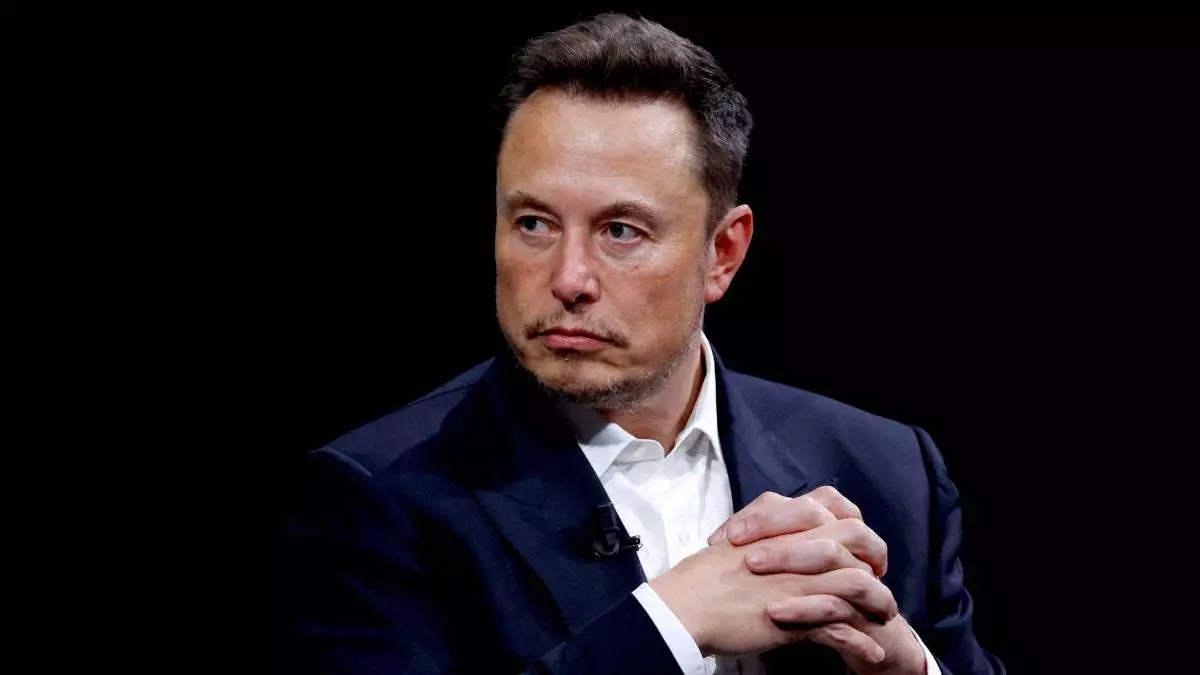The United States Securities and Exchange Commission (SEC) has taken a staunch position against billionaire entrepreneur Elon Musk following his failure to attend a mandated court-ordered testimony regarding his $44 billion acquisition of Twitter. On a fateful September day, Musk’s absence raised eyebrows, compelling the SEC to file for sanctions against him in a San Francisco federal court. The regulatory body characterized Musk’s late notification, which arrived just three hours before the scheduled testimony, as an egregious act of defiance that should not be taken lightly.
The significance of this case lies not only in Musk’s celebrity status but also in the foundational principles of accountability within the realm of securities regulation. By failing to appear at the hearing, Musk is accused of undermining the regulatory process and evading responsibility, thereby prompting the SEC to assert that he should be held in civil contempt. This raises important questions about the privilege and importance of regulatory compliance, even for those who stand at the pinnacle of wealth and influence.
Musk’s Defense: A Matter of Priority and Responsibility
In response to the SEC’s move, Musk’s legal representation painted his absence in a different light. Alex Spiro argued that the nature of Musk’s commitments that day—overseeing the launch of SpaceX’s Polaris Dawn mission—constituted an emergency situation not of Musk’s making. The defense hinges on the assertion that Musk’s involvement was critical to the safety of the astronauts aboard the spacecraft, an argument designed to invoke sympathy while highlighting the rigorous demands of his multifaceted career.
However, this raises an essential dilemma around the responsibilities of high-profile individuals: Should their corporate obligations defer to personal pursuits? Critics of Musk’s defense suggest that a proficient management team should have ensured representation at the SEC proceedings. The contention here extends beyond Musk as an individual; it delves into the broader conversation around corporate governance and the implications of leadership accountability when engaging with regulatory agencies.
At the heart of the SEC’s ongoing investigation lies an inquiry into whether Musk violated securities laws during his acquisition of Twitter shares in early 2022. The regulatory framework mandates timely disclosures when an entity acquires a stake exceeding 5% in a public company. Musk’s revelation of a 9.2% stake came significantly late, prompting scrutiny from investors and regulatory officials alike. The accusations extend beyond mere oversight; they point to potential manipulation or lack of transparency that stakeholders expect from companies and their leaders.
Musk has characterized his delayed disclosures as misunderstanding SEC requirements—an assertion that, while possible, raises doubts about the knowledge and due diligence expected from someone in his position. Such allegations, if substantiated, could jeopardize not only Musk’s reputation but also the trustworthiness of Tesla and SpaceX among investors.
Musk’s relationship with the SEC has been tumultuous, characterized by a series of confrontations and disputes. His earlier legal troubles, particularly concerning tweets about taking Tesla private, illustrate a history of tensions with regulatory bodies. The settlement of that lawsuit, which included a hefty fine and supervisory measures on his communications, was intended to enforce a level of accountability that Musk has persistently resisted.
This latest episode could represent a pivotal moment in Musk’s ongoing battle with the SEC. If sanctions are pursued and upheld, it will not only affect Musk personally but could also lead to broader implications for corporate governance and regulatory oversight. It will serve as a test case, scrutinizing how high-profile figures navigate—and at times defy—the rules meant to hold even the most powerful accountable.
As this saga unfolds, it is crucial for the business community and investors to reflect on accountability at all levels of corporate leadership. The SEC’s actions against Musk could catalyze significant discussions about ethical conduct, transparency, and the expectations placed on leadership in publicly traded companies. Musk’s case is emblematic of the struggle between fortune and accountability, reminding us that even the wealthiest individuals must ultimately answer for their actions in a framework designed to protect broader market integrity. The outcome of this situation may well influence future regulatory approaches toward high-profile executives and their interactions with the securities landscape.

